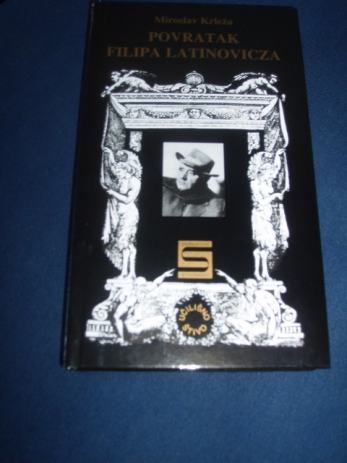
Krleža’s canonization in socialist Yugoslavia had a twofold character: he was officially praised as the greatest Yugoslav intellectual and artist ever, and as an ideologue of Tito’s special path to socialism. After the suppression of the movement, he became almost completely politically and intellectually inactive till his death. He resigned, though, after offering public support to the ‘Croatian Spring’, the mass reform movement advocating the autonomy of Croatia in the early 1970s. In the 1960s, he was even co-opted by the party to join the ‘Central Committee’ of the Croatian branch. In the 1950s, he founded the Yugoslav Lexicographic Institute (nowadays known as the Miroslav Krleža Lexicographic Institute), pushing for the autonomy of literature against the socialist principle, an effort in which he was largely successful. During the Second World War, he remained inactive in Zagreb, being also ostracized by the new communist regime until Tito’s break with Stalin in 1948. In the second half of the 1930s, he was engaged in the harsh debate with the party leadership (the so called ‘Clash on the literary Left’) opposing Stalinism and advocating the autonomy of art. He was chief editor of the literary magazines Plamen (The flame) (1919), Književna republika (The literature republic) (1923–1927), Danas (Nowadays) (1934) and Pečat (The seal) (1939), which popularized among interwar Yugoslav youth the notion of a socialist Yugoslav federation as the only path to south Slavic national emancipation.

From the 1920s onwards, he worked as a freelance writer and soon became known as the most outstanding Croatian and Yugoslav leftwing intellectual. He started his political career as an advocate of unitary Yugoslavism, and after the Bolshevik revolution he became a fervent advocate of Leninism. He spent most of the First World War in hospitals as a military convalescent, while publishing his first books, which immediately turned him into a prominent writer.

He graduated from a military cadet school in Pécs, and attended the Ludoviceum Military Academy in Budapest, from which he dropped out in 1913, starting a literary career. About the authorĥ Miroslav Krleža : writer and the most outstanding Croatian intellectual of the twentieth century.

1 Title: Banket u Blitvi roman u tri knjige (The banquet in Blitva a novel in three books).Ģ Originally published: Zagreb, Biblioteka nezavisnih pisaca, 1938.ĤThe excerpt used is from Miroslav Krleža, The banquet in Blitva, translated by Edward Dennis Goy and Jasna Levinger-Goy (Evanston, Illinois: Northwestern University Press, 2004), pp.


 0 kommentar(er)
0 kommentar(er)
